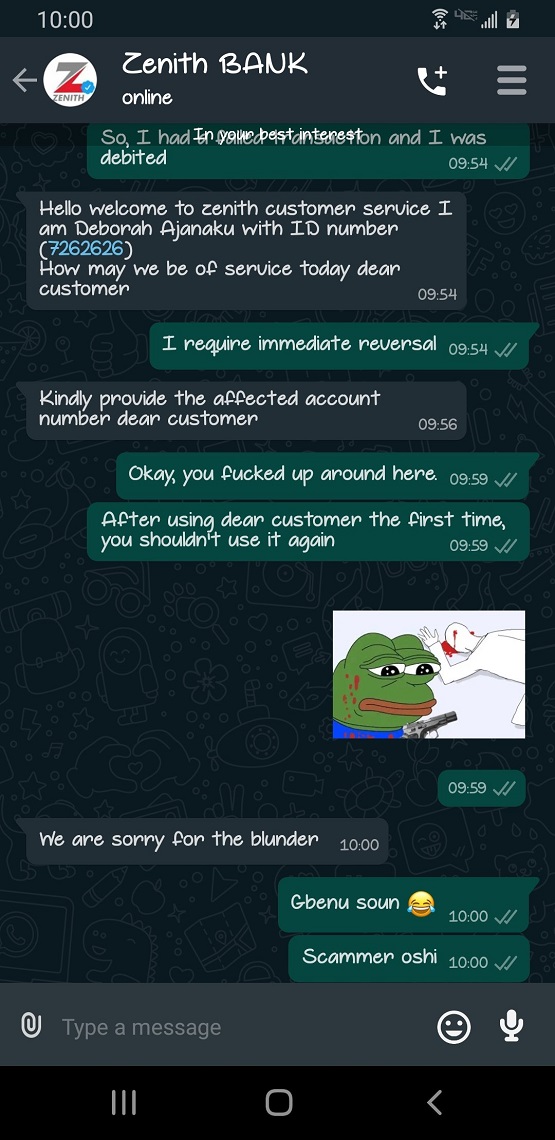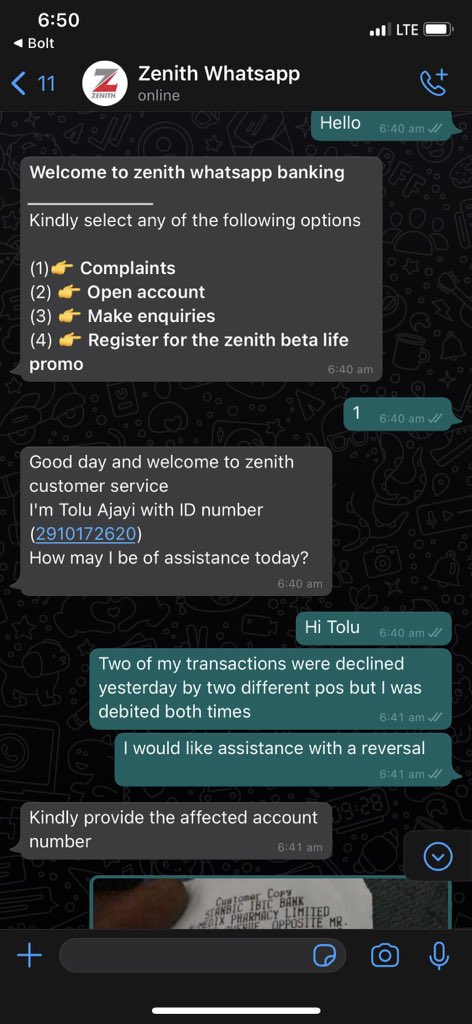Fraudsters are using social media platforms, including Facebook and Twitter, to target Nigeria Banks, telecoms clients looking for support and steal money from them.

The fraudsters monitor the Facebook and Twitter pages of companies like Zenith Bank, GTBank, Fidelity Bank, First Bank, Airtel, MTN, and others to identify people looking for help.
Pretending to be support agents from the company, they approach the customers looking for help in a DM.
After showing sympathy and promising to resolve the problem, they convince the customer to move the conversation to WhatsApp.
Once they have you on WhatsApp, they ask you for personal details to resolve the problem. This includes bank account details and related information.
This is not as strange as it may appear. Many clients complain about unauthorized debit orders or double debits on their bank accounts, and requesting this information, therefore, makes sense.
The scammers, masquerading as support agents, explain they need the banking details to reverse the debit orders. Or in some cases, the scammer will ask for a secret code sent to your mobile to verify your identity.
Customers typically provide this information as they are relieved to finally receive help from the company. This has dire consequences.

After the scammers have all the personal information they need, they wipe out the victim bank account balances, and if the victim is not smart enough to act on time (when the victim’s SIM is hacked), they’ll use the person’s identity to apply for loans and buy things in their name.
To prevent falling victim to all these scammers, you need to be one step smarter and ahead of them which is not always easy. Never give anybody provide any customer support agent secret codes sent to your mobile from your bank.
In some cases, once you put a complaint through to your bank on social media, these scammers will contact you immediately… For zenith bank customers, your bank doesn’t have a WhatsApp presence so don’t fall victim.

The fraudsters monitor the Facebook and Twitter pages of companies like Zenith Bank, GTBank, Fidelity Bank, First Bank, Airtel, MTN, and others to identify people looking for help.
Pretending to be support agents from the company, they approach the customers looking for help in a DM.
After showing sympathy and promising to resolve the problem, they convince the customer to move the conversation to WhatsApp.
Once they have you on WhatsApp, they ask you for personal details to resolve the problem. This includes bank account details and related information.
This is not as strange as it may appear. Many clients complain about unauthorized debit orders or double debits on their bank accounts, and requesting this information, therefore, makes sense.
The scammers, masquerading as support agents, explain they need the banking details to reverse the debit orders. Or in some cases, the scammer will ask for a secret code sent to your mobile to verify your identity.
Customers typically provide this information as they are relieved to finally receive help from the company. This has dire consequences.

After the scammers have all the personal information they need, they wipe out the victim bank account balances, and if the victim is not smart enough to act on time (when the victim’s SIM is hacked), they’ll use the person’s identity to apply for loans and buy things in their name.
To prevent falling victim to all these scammers, you need to be one step smarter and ahead of them which is not always easy. Never give anybody provide any customer support agent secret codes sent to your mobile from your bank.
In some cases, once you put a complaint through to your bank on social media, these scammers will contact you immediately… For zenith bank customers, your bank doesn’t have a WhatsApp presence so don’t fall victim.
